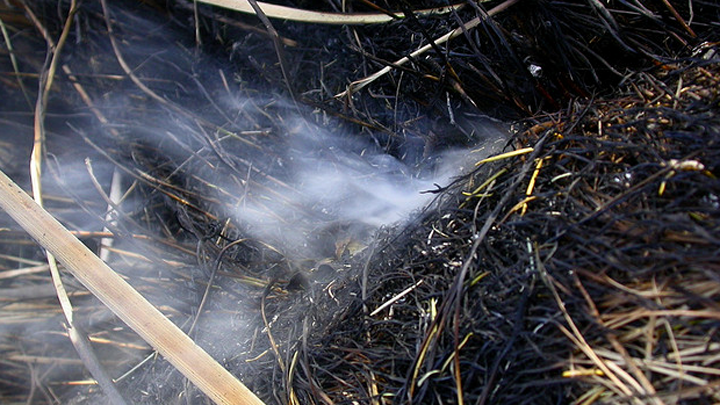Bushfire smoke harms the lungs like cigarette smoke

By Elizabeth Cassidy, The Conversation
Bushfire smoke can damage the lungs in a similar way to smoking-related emphysema, according to a study from the Woolcock Institute of Medical Research.
Published in international science journal PLOS ONE, the study found that breathing in smoke from burning wood and other biological materials – known as biomass fuels – can scar and inflame the lungs, increasing the risk of risk of developing chronic obstructive pulmonary disease (COPD).
COPD is the umbrella term for lung diseases including emphysema, chronic bronchitis and chronic asthma, and affects one in 13 Australians aged 40 and over. Cigarette smoke is the primary cause of the disease.
The researchers measured inflammation and scarring on human lung cells using tissue from 26 donors. The tissue was exposed to increasing concentrations of biomass smoke extract, collected from a burning tree, over 72 hours.
They found the smoke triggered the release of extracellular matrix proteins, important in the formation of scar tissue, and the production of key inflammatory mediators.
Lead author Brian Oliver from the University of Sydney’s School of Pharmacology said that while it has long been known that bushfire smoke was bad for your lungs, this was the first time researchers had examined the effects at a cellular level.
“It would be incorrect to say that someone who has been around a bushfire once is going to develop a horrible disease. However it is likely that massive exposure to something like bushfire smoke won’t be good for people’s health,” he said.
Dr Oliver said biomass fuels such as wood, coal and animal manure were commonly used for cooking and heating in the developing world.
“In most places in the world COPD or emphysema is usually caused by smoking cigarettes. However in certain parts of the world it is caused by exposure to pollutants including biomass smoke – smoke from anything like a tree or animal dung or grass,” he said.
Mick Meyer, principal senior research scientist at the Centre for Australian Weather and Climate Research at the CSIRO, advised caution interpreting the findings.
“The issue of exposure to smoke is one of balancing the risks,” he said, adding that exposure to bushfire smoke now did not guarantee lung disease in ten years time.
“It’s not likely that one whiff of smoke is going to kill you. More people will die this week of the heat than from bushfire smoke inhalation – it’s not asbestos,” he said.
Dr Fay Johnston, GP and senior research fellow in environmental epidemiology at the Menzies Research Institute at UTAS, who specialises in the public health impacts of bushfires, said the study filled gaps in current research on the possible mechanism for the harmful effects of biomass fuel smoke on lungs.
Dr Johnston urged people, especially the very young, the elderly, and those with heart or lung problems, to take sensible precautions to avoid bushfire smoke inhalation.
“If there is bushfire smoke in your area and you are pregnant or at higher risk because of a health condition or age, you would be advised to find cleaner air, if you can,” she said.
“A good way to avoid smoke is to use an air conditioner if you have one and set it to recirculate, or to spend time in an air conditioned public building such as a library or a shopping centre.”
Monash University occupational and environmental epidemiologist Martine Dennekamp said the research was important because it highlighted the potential public health problems associated with bushfires.
“Major cities can be covered in smoke, exposing millions of people and this – in combination with the fact that exposure to smoke from bushfires and planned burns is only expected to increase in the future – makes this an important public health problem,” she said.

This article was originally published at The Conversation.
Read the original article.









 Proudly Australian owned and operated
Proudly Australian owned and operated